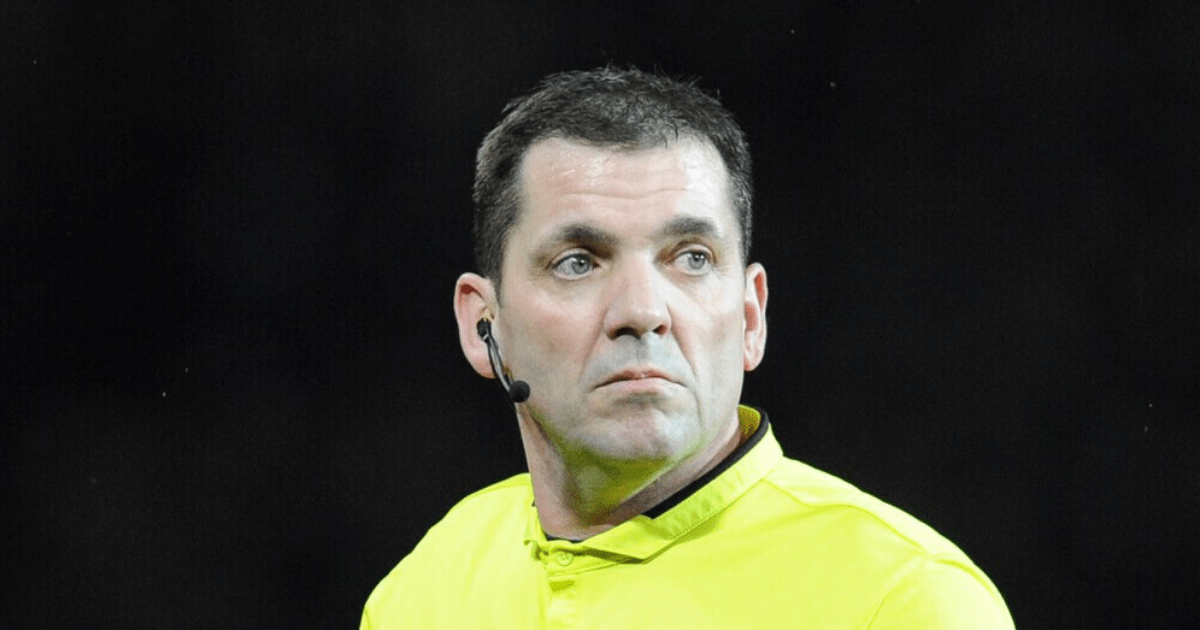Key Matches and Career Highlights
Former Premier League referee Phil Dowd, known for officiating key fixtures including FA Cup and League Cup finals, has disclosed his battle with Parkinson's Disease.
Diagnosis and Football as Solace
Diagnosed during the pandemic, Dowd shared, "Football gets me up in the morning now." Despite initial denial, Dowd found support in the football community.
Promoting Awareness and Positive Outlook
Now part of the PGMOL development group, Dowd aims to raise awareness for Parkinson's UK and show that a positive outlook and staying active are crucial in managing the disease.
Frequently Asked Questions
Can socks affect a player’s performance in football?
Absolutely. Football socks support and protect the player’s toes during intense gameplay. They help secure the shin guards in place, prevent blisters by reducing friction, and provide cushioning for the feet. A good pair of football socks can improve a player’s comfort, which can indirectly influence their performance on the pitch.
What are the factors I should consider when buying a soccer?
When selecting a soccer, you should consider its size, the construction and the material. Players aged 12 and up, including adult players, should use size 5. The size of the shoe should be based on your age. The material should be suited for the playing environment – leather for natural grass and synthetic materials for rougher surfaces. Thermo-bonded footballs are more waterproof and retain their shape better than those stitched. Durability, touch, and flight stability are also important characteristics to examine.
Why is it that shinguards are mandatory for all football players?
Shin guards, which protect the lower legs against injury during collisions and tackles, are an essential piece of football equipment. They help in safeguarding the shins from serious injuries like fractures or severe bruising. Football’s governing authority enforces the use of shinguards in order to improve player safety.
How do I choose football boots according to my playing surface?
Selecting the right type of football boot is determined by the type surface you plan to play on. For natural grass pitches, cleats with metal studs (FG – firm ground) are advisable as they provide traction and stability. For artificial turf, boots that have a sole with flat or numerous rubber studs will offer a better grip. Indoor courts (IN) require non-marking rubber soles to ensure adequate movement and prevent damage to the surface.
Are there any specific regulations regarding equipment during competitive football matches?
Yes, football competitions often have equipment regulations that are enforced to ensure player safety. The laws of the sport stipulate standard equipment like jerseys with sleeve, shorts, socks over shinguards or appropriate footwear. The use of equipment or accessories that are dangerous to the player, or even their opponents, is prohibited. It’s imperative for players to adhere to these regulations, which can vary by league and age group, to avoid penalties or disqualification from play.
Statistics
- Research has indicated that around 60% of football-related ankle injuries could be mitigated with the correct choice of footwear.
- Data shows that thermo-bonded footballs, known for their consistent performance, are preferred by 65% of professional football clubs for matches.
- Approximately 40% of amateur football players wear boots that are not properly fitted, increasing the risk of foot injuries.
- Globally, the demand for lightweight football cleats has risen by about 30% in the past decade, reflecting changes in player preferences and playing styles.
- A survey found that nearly 80% of football players believe that high-quality football socks are essential for optimal performance.
External Links
prodirectsoccer.com
uksoccershop.com
nike.com
soccer.com
footy.com
How To
How to Choose Football Equipment that Meets League Standards
In order to select the right football equipment, you must ensure that it complies with all league regulations. Consult your league’s ruling body to find out which equipment and branding are approved. This will include specifications for gloves, helmets and shoulder pads. Be aware of rule changes which may impact gear. This is particularly important for players at higher levels, where the regulations on equipment are stricter. Not only does compliance ensure safety, but it also helps to avoid penalties or being disqualified from the game.
Did you miss our previous article…
https://www.sportingexcitement.com/football/premier-league/chelsea-chairman-todd-boehly-set-to-be-replaced-in-major-shake-up/

